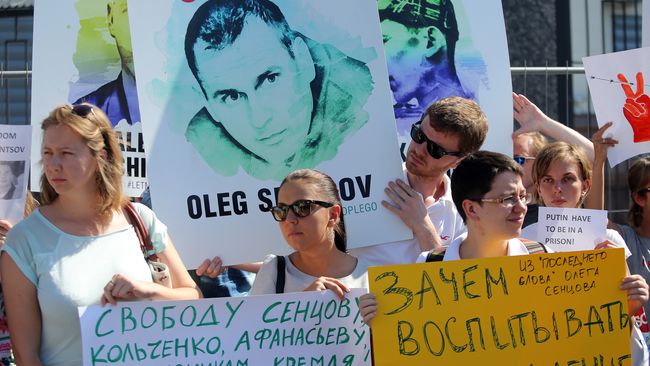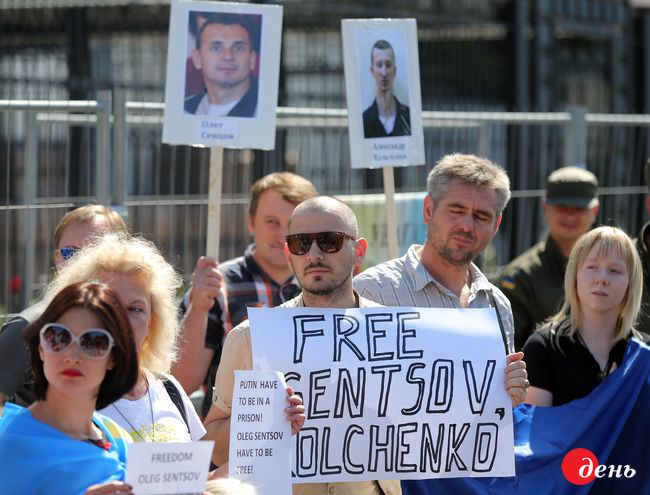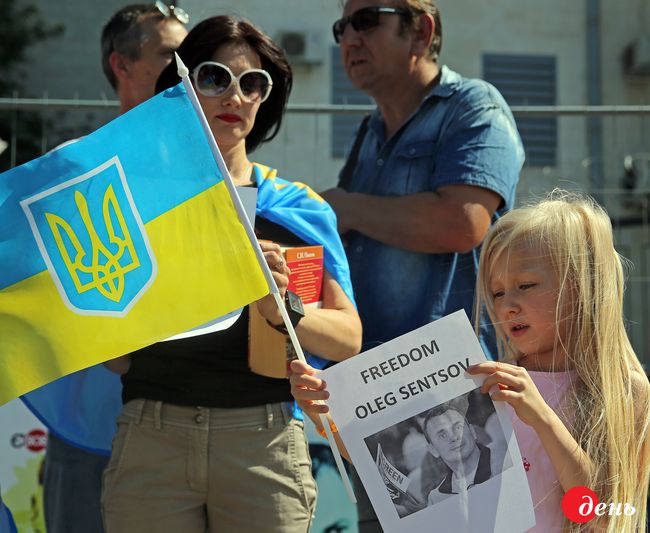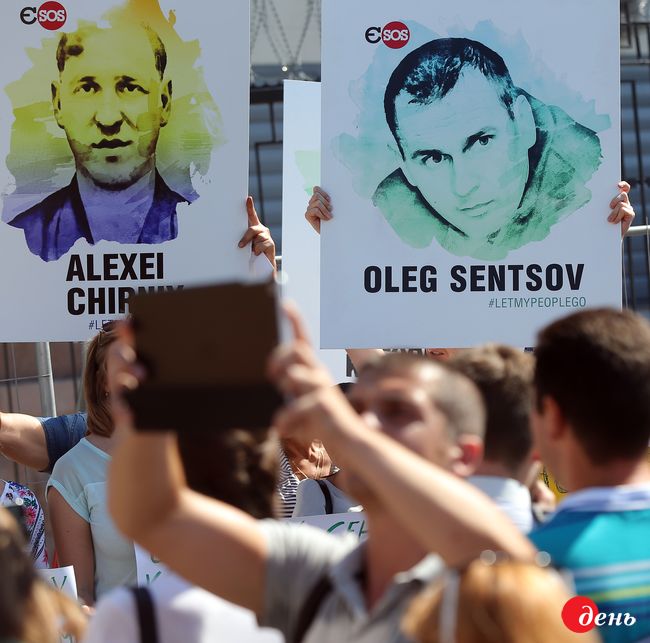Human rights activist: “No judgment other than acquittal will be lawful in this case”
Oleh Sentsov has been sentenced to 20 years in prison, while Oleksandr Kolchenko has got 10 years
The North Caucasus District Military Court in Rostov-on-Don pronounced sentence on filmmaker Oleh Sentsov and anti-fascist activist Oleksandr Kolchenko on August 25. Sentsov was sentenced to 20 years in a high-security prison, and Kolchenko to 10 years in the same kind of facility. The day before, the Russian prosecutors demanded that Sentsov be sentenced to 23 years in a high-security prison, and Kolchenko to 12 years.
On the sentencing hearing day, activists gathered outside Russian embassies in Kyiv, Paris, Stockholm, and Warsaw, urging the immediate release of the Ukrainian political prisoners. The protests were organized by the Solidarity Committee initiative group in Ukraine and the Public Committee of Solidarity with Ukraine, the Polish branch of Amnesty International and several other groups in Warsaw. In France, the event was initiated by Ukrainian filmmakers who live there, while local civic activists and political emigrants from Russia held the protest in Sweden.
Let us recall that Sentsov and Kolchenko were arrested in Crimea in May 2014 by operatives of the Federal Security Service of Russia. They were transferred to Russia soon afterwards. The Ukrainians stood accused of being members of the Right Sector, which Russia considers a terrorist organization, and planning sabotage actions in Simferopol, Yalta, and Sevastopol.

Oleksandra MATVIICHUK, coordinator of the Euromaidan SOS initiative:
“We appealed to all the people concerned with the fate of Sentsov and Kolchenko, asking them to gather outside the Russian embassy to show that our solidarity was stronger than the Russian aggression. This was a symbolic but important expression of support. This case cannot be decided in accordance with the rule of law in an authoritarian country, so the future of Sentsov and Kolchenko depends on our attention to their fate. No judgment other than acquittal will be lawful in this case.

“Russia is holding 11 political prisoners from Ukraine at the moment. Their situations are different, but uniformly bad. Theirs are politically motivated cases, there was no grounds to even detain them. These prisoners are scattered throughout Russia. They differ in age, as Yurii Soloshenko, for example, is 73; in social background, for Serhii Lytvynov is a farmer by trade; in the level of their social activity... But all of them are being shown as ‘hostile Ukrainians’ for the benefit of the Russian public. Some of them are falsely accused of spying, like Soloshenko, others of participating in punitive expeditions, like Nadia Savchenko and Mykola Karpiuk, still others of terrorism, like Sentsov, Kolchenko, and Hennadii Afanasiev. We know for sure that some of these people were brutally tortured. The whole world was shocked to hear Afanasiev to admit in court that he gave false testimony against Sentsov after being tortured. Such statements can be dismissed only in an authoritarian country.

“Some prisoners attracted the attention of the international community, while the fate of others is not a matter of genuine concern for anybody, and it is a pity. After all, all these people are equal, all of them are citizens of Ukraine who are persecuted for political reasons.”
Author
Maria ProkopenkoSection
Day After Day





